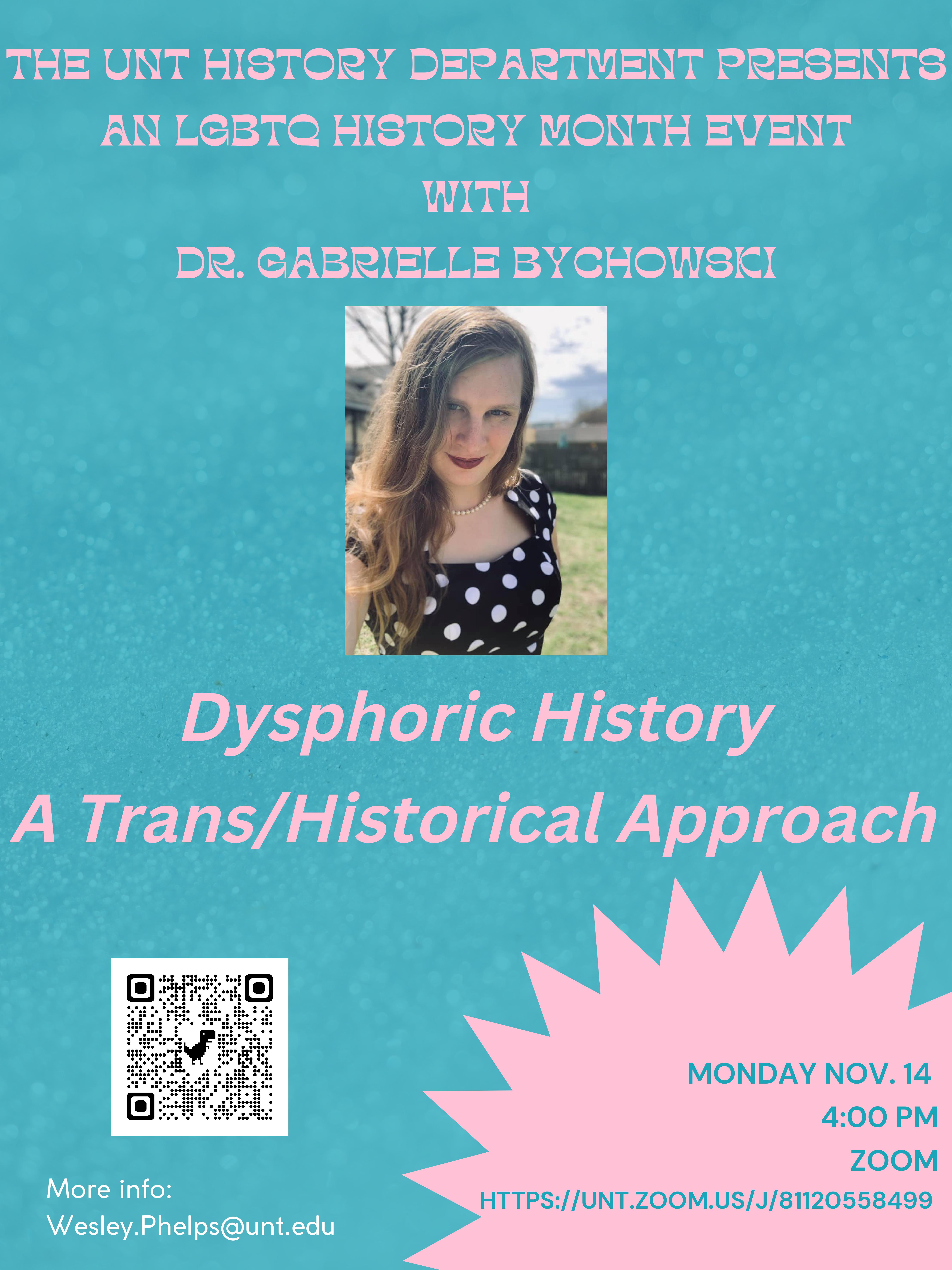Our LGBTQ History Month event this year will feature a Zoom presentation by Dr. Gabrielle Bychowski of Case Western Reserve University titled "Dysphoric History: A Trans/Historical Approach." The event will take place on Monday, Nov. 14, at 4:00 pm. Zoom link:
https://unt.zoom.us/j/81120558499
Gender dysphoria describes critical elements of subjectivity for many but not all transgender people in the twenty-first century. As a medical diagnostic from the Fifth Edition of the DSM (the Diagnostic and Statistical Manual of Mental Disorders, 2013), dysphoria builds upon more than a century of studies on trans psychologies. Indeed, the earliest modern diagnostic on the European continent, The Transvestites (Die Transvestiten, 1910) by Magnus Hirschfield, set the stage for the tools, terms, and techniques that trans studies would employ for generations. Yet this cornerstone of medical science rose out of Hirschfield's deep interest in the narratives and histories of trans people, drawing upon oral and literary archives previously ignored by the academy. Even a cursory reading of The Transvestites evidences how modern gender dysphoria has its roots in trans historical narratives and literature. In this talk, Dr. Bychowski will unpack how dysphoria has been an organizing pattern within trans literature since the premodern period, predating the adoption of the term within the modern medical sciences.
Dr. Gabrielle M.W. Bychowski is full-time English faculty at Case Western Reserve University. As the Anisfield-Wolf Fellow, she teaches courses on diversity and social justice, including seminars on Transgender Literature, Queer Christianity, Trans Narratives of Color, Women of the Civil Rights Movement, Disability History, and Intersectional Feminisms.


